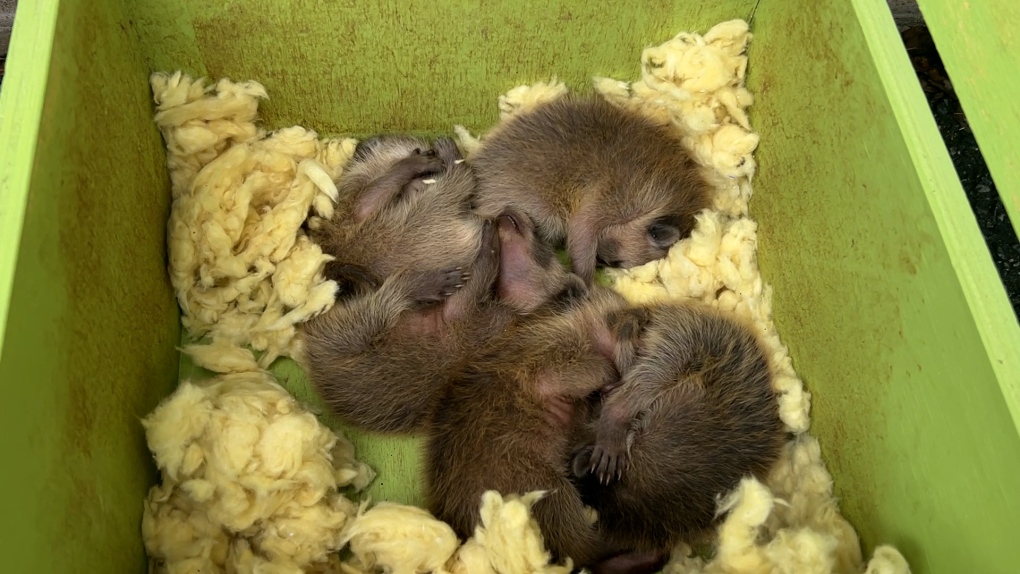Spring baby boom has wildlife taking up residence in Ottawa homes

Spring is here, which means a baby boom for wildlife, but it also means a boom for one local company helping homeowners in Ottawa deal with unwanted houseguests.
“I had no idea that a raccoon could punch up a soffit right about the eavestrough and get in my ceiling. No idea,” said homeowner Laurie Kluke.
Kluke says she heard scratching in her house and, at firs,t didn’t think anything of it, until she got a knock at the door.
“I had three little girls walking down the street, and they came to my door and rapped on it and they said ma’am you have a raccoon on your roof,” said Kluke.
So she called in the professionals for help.
“This is typically our busiest time of year because it is baby season for raccoons, squirrels, groundhogs, and skunks as well,” said Curtis Daniels, sales manager with Skedaddle Humane Wildlife Control.
According to Daniels, wildlife can cause thousands of dollars in damages to homes. He says prevention can go a long way.
“It’s always good just to walk around the house and just take a look at the corners of your peaks, as well as above your downspouts to notice any loose or damaged soffits,” said Daniels.
But if wildlife does get in, crews are prepared. Babies are put in a heated box that’s left near where they were found, so that the mother can come back and move them.
“There are some cases where that doesn’t happen and at that point we will take the babies off to a wildlife sanctuary,” said Daniels.
Sanctuaries like Holly’s Haven Wildlife Rescue, which is starting to see an influx in babies.
“By June, typically, every center in the province is full and we’ve squeezed in every last animal that we can and still get dozens of calls a day,” said Lynne Rowe, director of operations at the rescue.
Rowe says the best thing people can do this time of year is be patient.
“I understand the damage and noise can prevent people from doing that, but it’s ideal if you’re willing to wait and let the momma raise the babies until they move on,” Rowe said, adding that the industry is loosely regulated so, if you are going to call in a professional for help, make sure you are choosing a reputable company and ask about their removal methods.
“There are companies that do really good work in creating a one way exit for the mother. Carefully collecting the babies and putting them in a warm nesting box with a flap that the mother can go and retrieve them,” Rowe said.
“But we know of companies that will do cruel things to animals. They’ll just take them away and the people are happy they’re gone. And they don’t ask what happens next.”
View original article here Source









